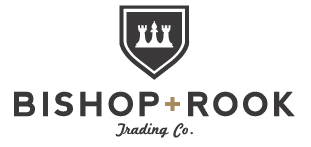When I started Bishop+Rook, I wrote a letter expressing my passion for vintage Land Rovers and the joy I found in connecting with others who shared this enthusiasm. I laid out a vision to create a company dedicated to restoring these iconic vehicles to their original factory condition. Our goal was to honor the heritage of the Land Rover brand while offering fairly priced products in a market flooded with excessively expensive options.
Today, I find myself writing another letter, but this time to explain why the company failed and share the lessons I’ve learned from this journey. It’s a sad day, but I hope that by reflecting on my experience, we can all gain some valuable insights.
To me, Bishop+Rook was more than just a company; it was the beginning of a dream. This was supposed to be my last job, my retirement, and the legacy I left behind. My vision was to create a unique business that provided unparalleled value in the industry. I wanted the company to be employee-owned, with a staff that felt secure and cared for. Building Bishop+Rook was a labor of love, a passion project into which I invested everything I had—time, money, energy, and heart.
Despite our passion and dedication, Bishop+Rook faced significant challenges that ultimately led to its downfall. The onset of COVID-19 brought unprecedented disruptions, including severe inflation, shipping delays, and the overall stress of navigating a business through such a volatile economic climate. Yet, even in the face of these adversities, our team remained steadfast and committed to powering through. We held onto hope and worked diligently to get back on track, believing that our dedication would see us through these tough times.
However, our troubles extended beyond the global challenges everyone else in the world faced. There were several other issues that compounded our difficulties and led to the company’s failure. While we encountered some operational difficulties with our workshop in Spain, the real issues arose with the partners I trusted to manage operations in the UK and South Africa. These individuals, who I believed were aligned with our company’s vision and values, unfortunately, had their own interests in mind. Their actions demonstrated a clear prioritization of personal gain over the company’s well-being and, more importantly, over the interests of our customers.
We faced major quality control problems from our overseas workshops, some of which seemed purposeful. It appeared that a few members of these workshops were indifferent to the results of their work. Consequently, the Minnesota team spent a considerable amount of their time fixing mistakes, poor workmanship, and generally re-working restoration efforts that were initially done incorrectly.
Additionally, two of the key managers in the UK and South Africa responsible for these operations diverted their focus from Bishop+Rook customer projects to secretive side work they pushed through the workshops without getting caught. This diversion of effort severely impacted our ability to deliver on our promises and maintain the high standards we set for our restorations.
It was profoundly unfair to our US team to constantly shoulder the burden of fixing errors and mistakes from our global workshops. These quality control issues led to significant delays and cost overruns. Instead of dedicating their skills and efforts to productive projects that would move the company forward, our US team in Minnesota found themselves re-working a considerable number of projects. This not only sapped morale but also strained our resources, making it difficult to maintain the high standards and efficiency we aimed for.
The persistent need to rectify poor workmanship from overseas diverted our focus from innovation and growth, severely impacting our ability to meet deadlines and customer expectations. The dedication and resilience of the US team were truly remarkable, but it was an unsustainable and deeply unfair situation that ultimately hindered our progress.
In South Africa, my business partners held customer projects hostage, demanding excessive payments for their release despite the projects already going over budget and incurring significant losses. This not only strained our financial resources but also damaged our reputation and customer trust.
The situation in the UK was even more troubling. Former employees and whistleblowers informed me that my former partner and Director of the UK workshop had secretly started a competing company and ran it for nearly a year using Bishop+Rook resources. Instead of focusing on our projects, he misappropriated company assets to benefit his venture. He forced employees to work on his projects, falsified time-tracking records and provided false updates to customers. The behind-the-scenes activities I discovered shocked me more than I can ever explain.
These betrayals and mismanagements were devastating. They not only drained our resources but also compromised the quality and reliability of our services. Despite the relentless efforts of the Minnesota team to rectify these issues, the cumulative effect of these challenges was too great to overcome. These experiences have taught me the importance of vigilance and the need for trustworthy partners with the same commitment to quality and integrity.
Late in 2023, we developed an extensive turnaround plan, hoping to salvage Bishop+Rook and get back on track. We carefully analyzed our operations, identified areas needing improvement, and laid out a strategic plan to address the issues that had plagued us. However, as we looked deeper into the company’s state in early 2024, it became painfully clear just how extensive the damage was.
Despite exhausting all possible efforts—including securing loans, seeking new investments, and even looking into mortgaging my own home—it became evident that the damage was too profound to recover from. The mismanagement, quality control issues, and betrayals had created an insurmountable financial and operational quagmire. Every avenue we explored seemed to lead to further complications and potential harm, not only to the company but also to our valued customers and employees.
After much deliberation and soul-searching, I came to the heartbreaking conclusion that there was no viable path forward that wouldn’t cause further damage. It was an incredibly difficult decision, but one that was necessary to prevent more extensive fallout. This realization marked the end of a dream, but it also highlighted the importance of facing reality with integrity and the willingness to make tough decisions for the greater good.
Throughout this difficult journey, I often hesitated to speak publicly about what happened behind the scenes. I was embarrassed and ashamed that I had placed my trust in individuals who ultimately let the company and customers down. Admitting that I made such critical errors in judgment was not easy, and the fear of further damaging the company’s reputation kept me silent. While there are many things I could have done differently in hindsight, I have come to realize that you can’t always control the interests and actions of others.
This painful lesson has underscored the importance of vigilance and due diligence, even when dealing with those who seem trustworthy. Despite the embarrassment and regret, I remain committed to learning from these experiences and applying these hard-earned lessons to any future endeavors.
Sitting in the background, reading hateful emails, online messages, and forum discussions accusing me of being a terrible person and deliberately depriving people of their money was incredibly difficult. Legally, I was unable to respond due to the complexities of closing a business. Despite my intense desire to defend myself, I had to remain silent, which many interpreted as me simply walking away from the company. What these critics didn’t realize was the immense effort I was putting in behind the scenes to make things right. The accusations and misunderstandings were painful, but my commitment to resolving the issues for our customers never wavered.
One of the most heart-wrenching aspects of this entire ordeal was facing my employees, who had become like family to me. Bringing them together to break the news that Bishop+Rook wasn’t going to make it and that they were all out of a job was one of the hardest things I’ve ever had to do. These men of incredible character, especially the team in Minnesota, demonstrated their unwavering support by expressing more concern for my well-being than their own unfortunate situation. Their selflessness and solidarity in the face of adversity is something I will never forget and will always be grateful for.
The reactions from our customers were diverse and intense. While many expressed their anger, frustration, and a passionate desire for retribution, there were others who responded with unexpected kindness, understanding, and support. This latter group surprised me and provided a much-needed source of encouragement during this difficult time. Some of these compassionate individuals have become lifelong friends, proving that even in the darkest moments, human connections can thrive. Telling someone they might lose everything is incredibly difficult, but those who chose to work with us in hopes of salvaging something from the experience demonstrated an extraordinary resilience and faith that I deeply appreciate.
If we had simply closed the doors the day we let the staff go, it would have undoubtedly been a much easier process. It would have saved us considerable time, money, and legal troubles. However, for me, that wasn’t the right approach. I went against the advice of several close advisers when I decided to keep fighting on behalf of our customers.
I had nothing to gain personally but felt a moral duty to help them as much as possible. Even as the lawsuits continued to pile up, I felt a profound responsibility to try and assist as many customers as possible. The easy route would have been to walk away, but my commitment to those who had entrusted us with their projects and investments drove me to continue advocating on their behalf, despite the significant challenges.
After we officially closed the workshop, we made the decision to keep the business operational to support the customers who had projects underway. We aimed to ensure they could access their projects and receive the advocacy they needed during the closure process.
In an effort to legally shut down Bishop+Rook UK Ltd. while protecting our customers’ assets, we went through a Creditors Voluntary Liquidation process in the UK. This process was intended not only to manage the company’s closure but also to investigate my former partner’s misdeeds. Unfortunately, the reality of the situation fell far short of these intentions.
No investigation into my former partner’s actions occurred, and the liquidator severely frustrated the recovery process. Instead of facilitating a smooth transition, the liquidator created a series of delays, imposed financial demands, and sold off important customer assets. These actions hindered our ability to protect and return customer projects and investments, further compounding the difficulties we were already facing. The entire liquidation process, meant to bring clarity and resolution, only added to the chaos and frustration experienced by our valued customers and myself.
This liquidation process threatened to deprive customers of their projects and investments, and I felt a profound responsibility to stand by them. Despite the business closure, our commitment to our customers remained unwavering as we navigated these challenges together, striving to protect their interests and salvage what we could from a deeply unfortunate situation.
The impact of this situation has been overwhelming. I often find myself unable to sleep, replaying the events in my mind and wondering what more I could have done to prevent this outcome. It has been a significant emotional and financial blow, and the disappointment and sense of failure weigh heavily on me.
I feel deeply for our customers who have been affected by this situation. Many have rightfully expressed their frustration and disappointment, and I understand their feelings completely. It has been incredibly tough to face criticism, especially knowing that it stems from a situation beyond my control. Despite this, I have tried to respond to every concern with empathy and a genuine desire to help, doing everything within my power to support our customers through this transition.
I have learned through this ordeal that businesses can fail for a myriad of reasons, and often those reasons are beyond one’s control. What truly matters, however, is how we respond to these challenges. I believe that our character is defined not by the failures we encounter but by our resilience and determination to rise again. I am committed to learning from this experience, to rebuild, and to ensure that future ventures are built on even stronger foundations. While Bishop+Rook may have failed as a business, the journey taught me invaluable lessons about trust, integrity, and resilience. My hope is that these experiences will shape future endeavors and that the spirit of what we tried to build will live on in the connections we made and the work we accomplished.
While the road ahead is uncertain, I am determined to take these lessons to heart. I am deeply grateful for the support and understanding from those who have stood by me during this tumultuous time. Your faith in me gives me the strength to move forward and pursue new opportunities with renewed vigor.
Thank you for taking the time to read this letter. I wanted to share my story not just to explain what happened, but to emphasize my commitment to moving forward with integrity and purpose. I hope that, in time, I can regain your trust and confidence.
We have decided to publish the details of the liquidation process in the UK, so people can learn from these lessons:
Liquidation of Bishop+Rook UK Ltd.
We also decided to provide an extensive timeline and history of the liqudiation process here:











